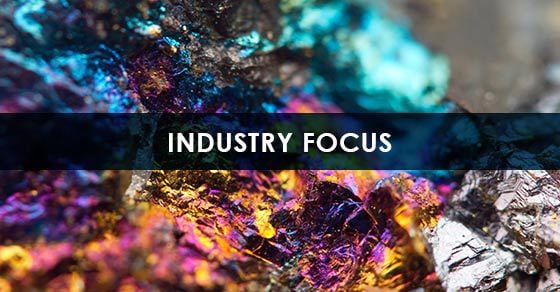Canada announced the release of their critical mineral list at this year’s Prospectors and Developers Association of Canada’s (PDAC’s) annual convention.
Not surprisingly, the list is largely based around the metals associated with the switch to a low-carbon economy, but also focuses on the materials needed to bolster the nation’s defense, security, electronics, medical applications, advanced manufacturing, agriculture, and necessary infrastructure, according to the government.
As a key supplier of process development services, custom mineral processing equipment, and aftermarket support to the mining industry, FEECO continues to be an important resource to the industry.
Canada’s Critical Minerals
The list, developed by Natural Resources Canada in cooperation with a team representing various federal, provincial, and territorial entities, is an essential step toward putting the nation in a position to meet the goals set out by the Canadian Minerals and Metals Plan, or CMMP, which aims to make Canada the world’s leading mining nation.
The list consists of 31 materials deemed critical to Canada:
- Aluminum
- Antimony
- Bismuth
- Cesium
- Chromium
- Cobalt
- Copper
- Fluorspar
- Gallium
- Germanium
- Graphite
- Helium
- Indium
- Lithium
- Magnesium
- Manganese
- Molybdenum
- Nickel
- Niobium
- Platinum group metals
- Potash
- Rare earth elements
- Scandium
- Tantalum
- Tellurium
- Tin
- Titanium
- Tungsten
- Uranium
- Vanadium
- Zinc
While there is some overlap found between Canada’s list and that of the US, Canada’s list is perhaps less focused on materials the nation will struggle to maintain a reliable supply of and more focused on those Canada will be able to source for itself and its allies.
Pierre Gratton, President and CEO of the Mining Association of Canada, is quoted as saying:
Demand for minerals and metals continues to grow with an increasing focus on critical minerals – vital in aerospace, healthcare, telecommunications and an array of clean technologies such as solar panels and electric car batteries. We’re confident that, with Canada’s leadership in sustainable mining standards and the government’s commitment to critical minerals development, the mining sector has the tools, skills and support to provide the responsibly sourced minerals vital to industries in Canada and around the world.
Similarly, Saemus O’Regan Jr., Canada’s Minister of Natural Resources, had this to say on the matter:
The 31 critical minerals on Canada’s list are used to develop clean technologies, from solar panels to EV batteries. They’re all essential to lowering emissions, increasing our competitiveness, and strengthening our energy security. Canada’s list signals to investors where Canada will focus and where Canada will lead. Critical minerals will get us to net-zero.
The secure supply of minerals and metals has perhaps been the most talked-about topic next to the pandemic in recent times, as the push for a low-carbon economy strengthens and the reality of the amount of materials it will require sets in.
One of the Pan-Canadian Initiatives identified in the CMMP’s Action Plan is the push to promote innovation of all types in the industry. Not unlike the US’s critical minerals strategy, this could mean mining tailings or extracting value from waste materials, developing improved recovery processes, or otherwise.
Conclusion
Canada’s release of their critical minerals list is another indicator that the renewable energy and low-carbon future will depend heavily on metals and minerals, making the mining industry, and the sustainable use of resources, more important than ever.
FEECO has been supplying the mining industry with mineral processing equipment, parts and service, and process development services since 1951. Our heavy-duty equipment, material and process expertise, and testing capabilities have made us a preferred provider in bringing new and advanced systems and equipment to market to support the transition to a more sustainable future.


